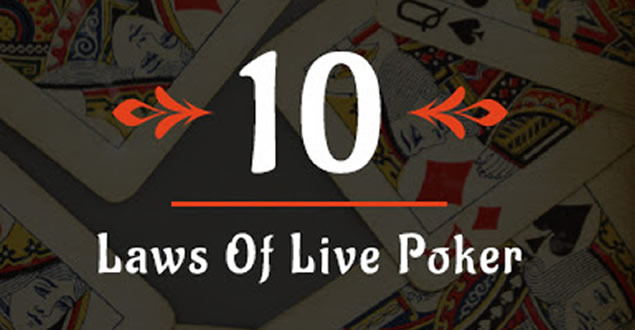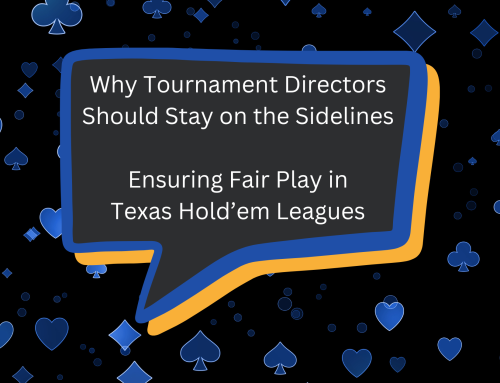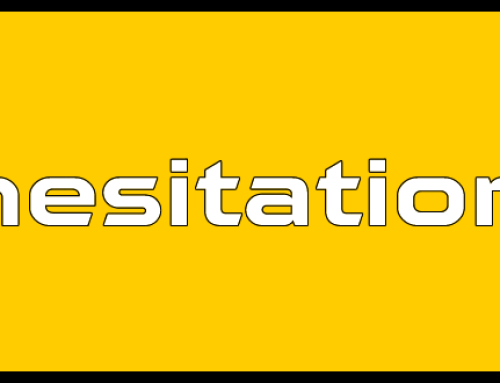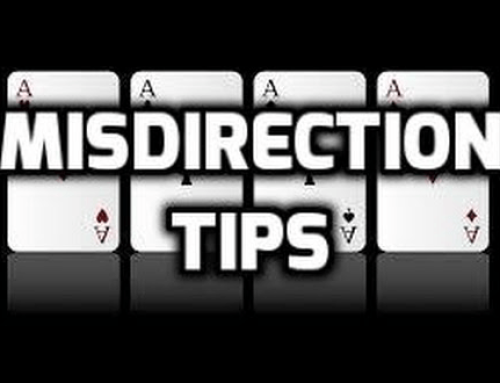You’ve probably heard countless tips on how to play against weak live players. A few of these tips might be useful, but the vast majority are likely the same old garbage that live regulars use to justify their bad habits. Luckily, this guide will separate the facts from the fiction by revealing the 10 Laws of Live Poker. If you already have a decent grasp on the fundamentals of poker strategy, then abiding by these laws will massively improve both your win-rate and overall poker-playing experience.
Law #1
Don't Open-Limp
When you see someone open-limp, it’s a sign they are probably a weak player. The main reason that good players never limp is that it denies them a chance to win the pot preflop. It also weakens their range, deprives them of the betting initiative, and almost guarantees a multiway pot. These reasons make it harder for them to win the pot postflop.
In other words, open-limpers win less pots. Now, it’s important to distinguish between open-limping and over-limping:
- Open-limping is when we limp when everyone before us has folded.
- Over-limping is when we limp after another player has already limped before us.
Over-limping can be fine, and is actually often correct. Generally speaking, you want to over-limp hands that may not be quite strong enough to raise, but flop too well to be thrown away, such as suited connectors or gappers.
Note: Open-limping from the small blind when it folds around can be a viable strategy if done correctly.
Law #2
Bet small in Multiway Pots
Betting small in multiway pots allows you to bet many types
of hands on the flop – hands you wouldn’t be able to
profitably bet for a larger size. When you bet, your
opponents are forced to react in a very precise manner with
their range because of the many variables at play.
You should also use small bet sizes in multiway pots online,
but it’s especially good against live players because they are
prone to making mistakes. Additionally, live players typically
have much wider ranges with a lot more junky hands,
which means your small bet will force more folds and run
into fewer strong hands.
Once you get to the turn, when hand ranges are more
defined, you can start breaking out the more typical
bet sizes (66% pot or more).
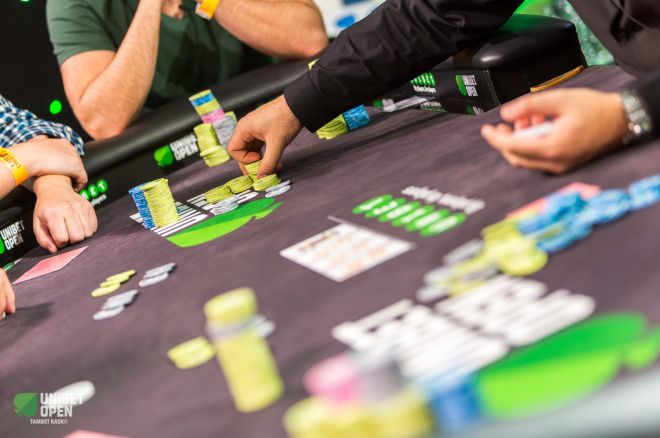
Law #3
3Bet vs Recreational Players as much as possible

Recreational players rarely play well against 3-bets and in 3-bet pots.
There are many reasons for this:
They rarely 4-bet, and when they do, it’s a premium hand.
Their low 4-bet frequency allows you to 3-bet with a very high likelihood of either winning the pot preflop or seeing the flop with the betting initiative. Both are very favorable outcomes for you.
3-betting gives them the chance to make a bad fold or a bad call.
Live players are rarely adept at preflop hand selection, and 3-betting gives them a chance to make a mistake. Some will call too often with dominated hands, and others will fold hands that are worth a call.
They will play particularly badly postflop in 3-bet pots.
Since 3-bets are relatively rare at live tables, live players are usually inexperienced at playing 3-bet pots postflop. They often play “fit or fold” on the flop, allowing you to easily pick up the pot with a c-bet when they miss
What specific hands should you 3-bet?
Premium hands, of course, and medium-strong to strong hands that play well postflop
(including suited connectors).
Law #4
Overfold when faced with aggression, especially to 3-bets and River bets.
It’s no secret that live players tend to be passive
but they are especially passive in these two common spots:
3-Betting:
Live players do not 3-bet with nearly enough
medium-strength or bluff hands.
River Betting:
Live players don’t bluff much on the river, especially when
betting big or triple barreling.
Naturally your reaction should be to overfold in these situations. Basically, anytime the board looks good for your range and you show aggression and yet face aggression back,
you should rethink the strength of your hand. Of course, this goes out the window if you know your opponent is an aggressive player who is capable of bluffing.
Law #5
Get comfortable playing with deep stacks
You can maximize your edge by making sure you play as
deep as possible against the weak players at the table.
This is, arguably, one of the biggest edges to be had in live poker.
This allows you to both profit as much as possible when they call
too light and apply maximum pressure when bluffing.
Additionally, it’s not practical to switch live tables every time
you get deep like you could easily do online.
Rather than avoiding it, you should embrace it because
deep stack play means a larger edge and higher hourly.
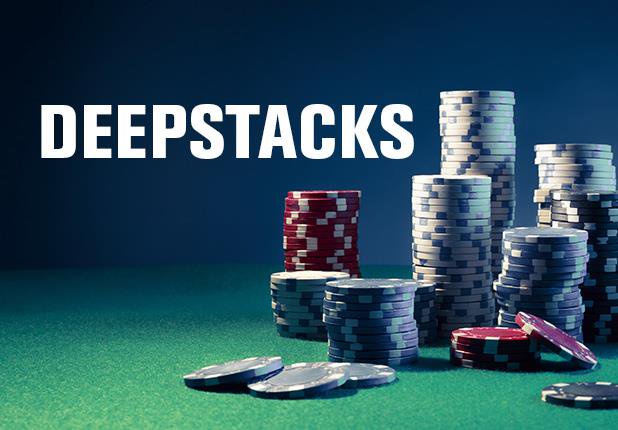
Law #6
Be a FUN and Engaging Personality

Too many serious poker players – particularly at the lower stakes –
adopt an “us vs them” mentality. These players often times
get aggravated when they lose a pot that was poorly played
by their opponent.
Having this mindset will have a corrosive effect on your poker
career, and it won’t be long before you start hating the game.
Rather, you should always strive to make your
table a fun place to be.
Not only will this make you more desirable to play with, it may
allow you to glean valuable information from your opponents
through conversation.
Law #7
"Play Fast"
One of the biggest challenges in live poker is how tough it is to
make worthwhile money with so few hands played per hour.
It’s important to take your time and think when necessary, but you should generally try to play quickly.
Playing more hands per hour will make you, your table mates, and your bankroll happier.
Law #8
Don't take things Personally
Don’t take anything personally, because by taking things personally, you set yourself up to suffer for nothing.
~ Don Miguel Ruiz

Sometimes you’re going to get attacked at the poker table, either directly or indirectly. You’re going to get bluffed, sucked out on, and occasionally berated by your opponents. Don’t take these negative events personally or let them throw you off your game. Instead, try to remain stoic and use them as an opportunity to strengthen your resolve.
Law #9
Game Select
The way you make money in poker is by having an edge on the players at your table. There are two ways to increase your edge and the money that comes with it: become a better player or play with worse players. Both are important, but the latter is much easier.
When you’re at the casino,
try to find and play at the table
with the weakest players.
This will be easier if you abide
by Law #6 and chat with your
opponents while playing.
It’s usually quite apparent who
the good and bad players are
once you get them talking.
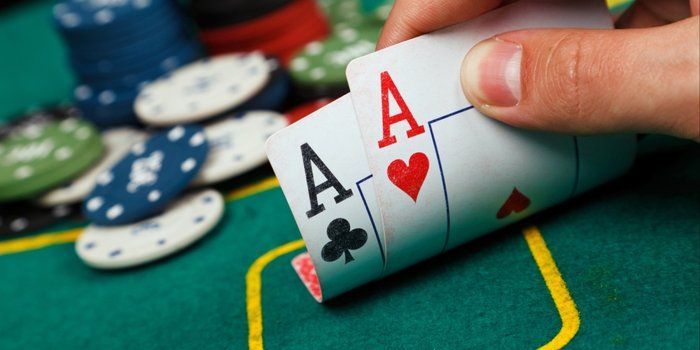
Law #10
Try not to be too Predatory
There’s a fine line between game selecting and being a predator.
It’s important to only sit with players you can beat,
but don’t sell your soul and become what poker players
call a “bumhunter” in the process.
Always keep in mind that these are real people you are
playing against, and not just a source of income.
Treat your opponents with respect.
- JUST REMEMBER -
Poker is a Marathon, not a Sprint.
src: upswingpoker.com

